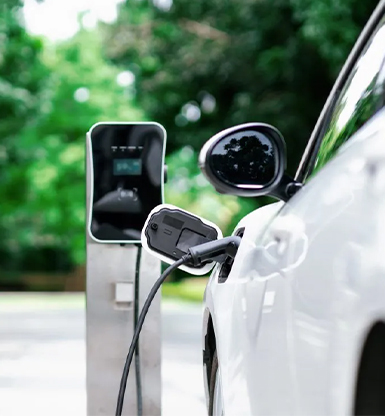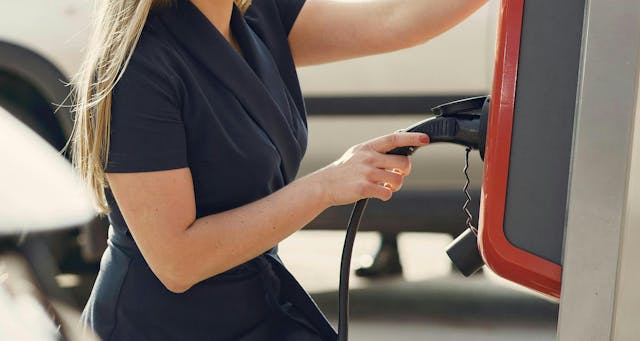The Most Reliable Sources to Buy EV Charging news and Stay Informed
The Most Reliable Sources to Buy EV Charging news and Stay Informed
Blog Article
Top EV Charging News: Secret Updates on Facilities and Development

Recent Improvements in Fast-Charging Modern Technology

Moreover, developments in battery innovation, including boosted thermal management systems and higher power density batteries, complement fast-charging abilities. These advancements minimize the danger of battery destruction throughout rapid charging, making sure durability and efficiency for EV owners.
Additionally, the integration of smart billing remedies is enhancing customer experience, allowing real-time tracking and dynamic prices models. EV Charging news. This versatility allows chauffeurs to optimize billing prices and times based on grid need
As car manufacturers remain to spend in fast-charging networks, the partnership between market stakeholders is vital. Collaborations between billing station service providers and auto makers are paving the method for comprehensive protection, inevitably promoting a more durable EV ecological community. These advancements are pivotal in supporting the transition to sustainable transport.
Government Initiatives for Charging Growth
Government efforts play a vital duty in the development of electrical car (EV) charging framework, helping with the change to sustainable transportation. Numerous federal and state programs are being carried out to boost billing ease of access, reduce the monetary burden on customers, and advertise the fostering of electrical vehicles.
Notably, the U.S. federal government has actually designated substantial funding via the Framework Investment and Jobs Act, which allocates $7.5 billion for EV billing network advancement across the nation. This financing is focused on deploying thousands of new billing stations, specifically in underserved areas, therefore addressing range anxiousness among prospective EV purchasers.
In addition, various states are establishing regulations to improve the allowing procedure for billing station setups, which is essential for speeding up deployment. Motivations such as tax credit scores and rebates for both customers and companies are additionally being presented to motivate the installation of billing facilities.
Moreover, public-private partnerships are increasingly becoming an emphasis, leveraging personal investment to match government funding. These campaigns emphasize a collaborative strategy crucial for building a effective and thorough EV billing network, ultimately adding to a greener and more sustainable future.
Ingenious Battery Solutions Enhancing Efficiency
Reinventing the landscape of electric lorry (EV) technology, innovative battery solutions are substantially improving performance and performance. Breakthroughs in battery chemistry, particularly with lithium-sulfur and solid-state batteries, are causing increased energy density, which allows for longer arrays and faster charging times. These new battery types have the possible to outperform conventional lithium-ion batteries by using greater abilities while minimizing weight, therefore improving total car performance.
Furthermore, advancements in battery monitoring systems (BMS) are maximizing energy use and prolonging battery life expectancy. Intelligent algorithms keep an eye on battery health and performance, allowing real-time adjustments to billing and releasing processes. This not just enhances the performance of the battery but also ensures an extra reputable and sustainable power source for EVs.
Furthermore, the assimilation of reusing innovations is addressing the ecological impact of battery manufacturing and disposal. Innovations in second-life applications for EV batteries are facilitating their usage in energy storage space systems, adding to a round economy.
As these innovative battery services continue to advance, they assure to transform the EV market, making electric automobiles a lot more attractive and available to a broader audience while sustaining worldwide sustainability objectives.

Collaboration Between Automakers and Charging Networks
Acknowledging the crucial demand for a durable charging infrastructure, car manufacturers are progressively teaming up with billing network providers to improve the EV ownership experience (EV Charging news). These collaborations intend to develop a smooth charging ecosystem that benefits consumers and supports the transition to electrical lorries
Significant vehicle brands are joining pressures with recognized charging networks to expand their charging station coverage, making certain chauffeurs have accessibility to practical and reputable published here billing options. Collaborations with networks like ChargePoint and Electrify America enable car manufacturers to integrate billing services directly right into their lorries' navigation systems, leading users to the nearby pop over to these guys stations and supplying real-time schedule updates.
Moreover, these collaborations typically result in the growth of fast-charging technologies that considerably lower the time required to recharge an EV. By pooling resources and know-how, car manufacturers and charging networks can innovate faster, producing options that satisfy the growing demand for electric movement.
Additionally, joint efforts might additionally bring about more standardized billing methods, which can reduce consumer complication and advertise broader EV fostering. Overall, these calculated alliances are critical in constructing a effective and easy to use charging framework that fulfills the demands of a broadening electric lorry market.
Challenges Facing EV Charging Framework
As the electric lorry market remains to expand, a number of obstacles are surfacing that prevent the advancement of a comprehensive billing facilities. One of the key challenges is the insufficient variety of billing stations, specifically in rural and underserved metropolitan locations. This void creates array anxiousness among possible EV purchasers, preventing them from making the switch.
In addition, the absence of standardization in billing innovation complicates the framework landscape. Variations in plug kinds and billing rates can create complication for individuals and increase functional intricacies for charging network operators.
An additional pushing problem is the high price connected with the installation and maintenance of billing terminals, which can be a barrier for both public entities and private businesses. Ultimately, regulatory obstacles and zoning restrictions can postpone the release of billing infrastructure, hampering progress in increasing important services. Resolving these difficulties will certainly be essential for promoting a durable EV community that supports the change to lasting transportation.
Final Thought
To conclude, the continuous advancements in EV billing modern technology, supported by considerable government campaigns and ingenious battery remedies, are critical for read this the development and efficiency of electrical vehicle facilities. Collaborations between car manufacturers and charging providers further enhance terminal insurance coverage, dealing with the expanding demand for available charging choices. Regardless of obstacles that linger within the EV charging landscape, these developments represent a positive trajectory towards a much more effective and sustainable electric automobile environment.
Innovations in billing infrastructure have led to the advancement of ultra-fast battery chargers qualified of supplying up to 350 kW of power, dramatically lowering billing times. Variants in plug kinds and charging speeds can develop complication for individuals and boost operational intricacies for charging network operators.In conclusion, the recurring advancements in EV charging innovation, sustained by significant federal government initiatives and ingenious battery services, are vital for the expansion and efficiency of electrical car infrastructure. Cooperations in between car manufacturers and charging suppliers even more enhance station insurance coverage, resolving the growing demand for available billing alternatives. Despite obstacles that persist within the EV charging landscape, these growths symbolize a positive trajectory in the direction of a much more lasting and efficient electric vehicle ecosystem.
Report this page